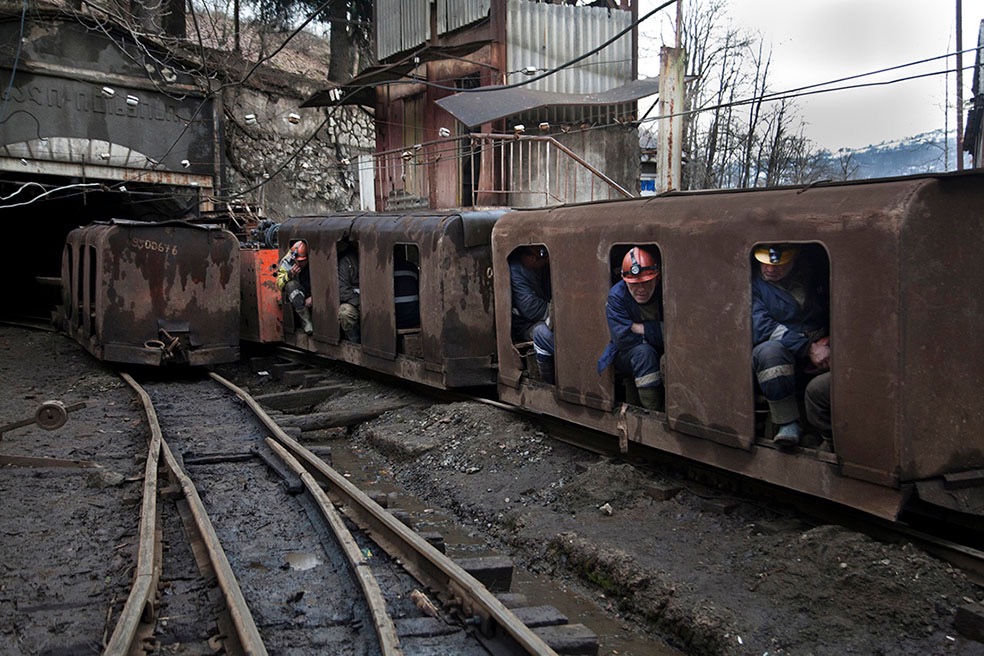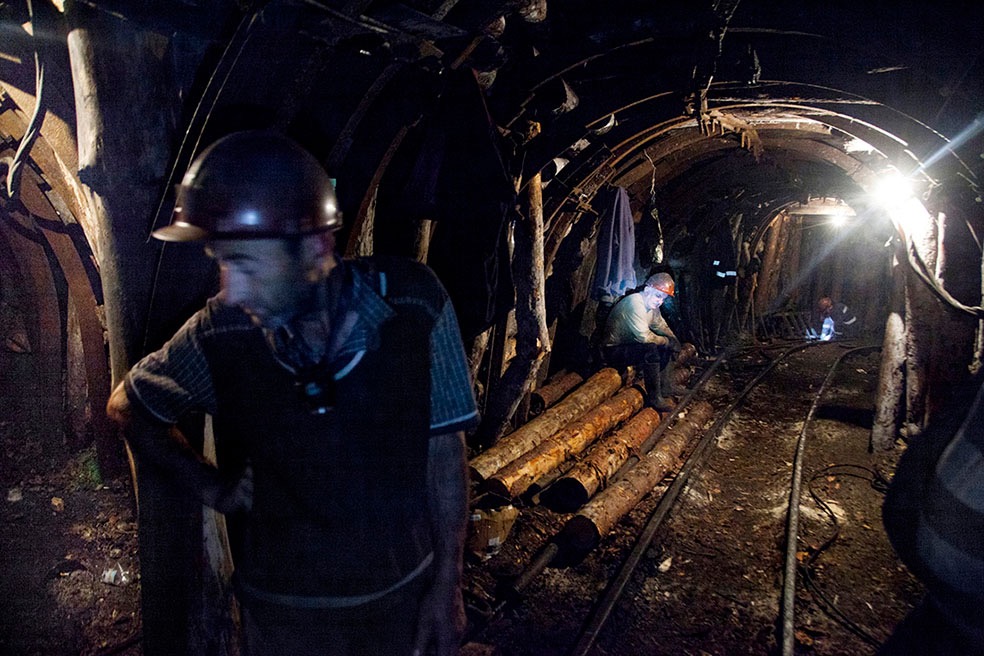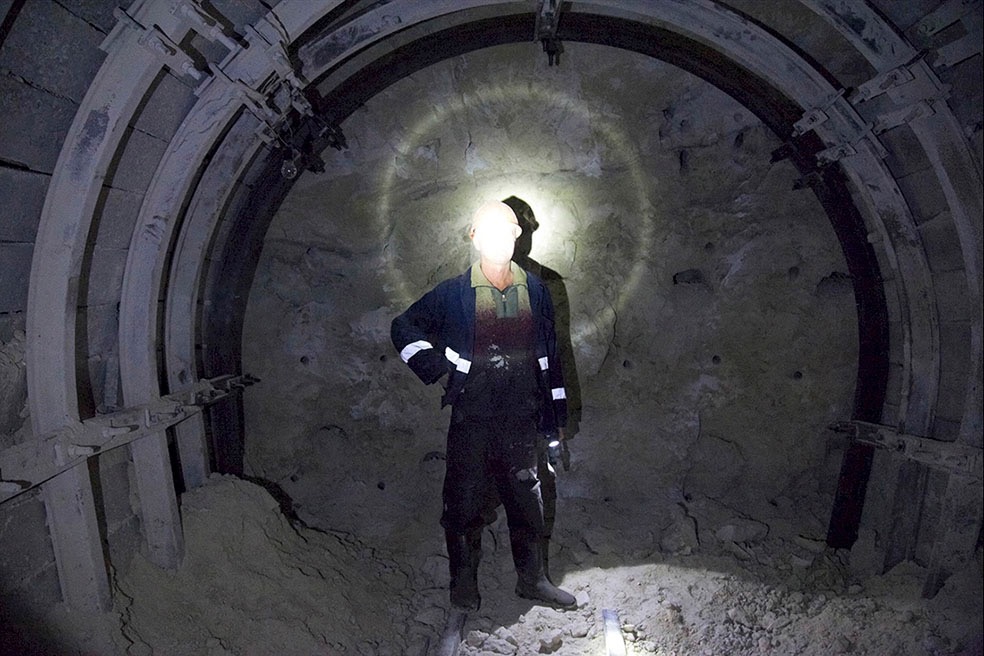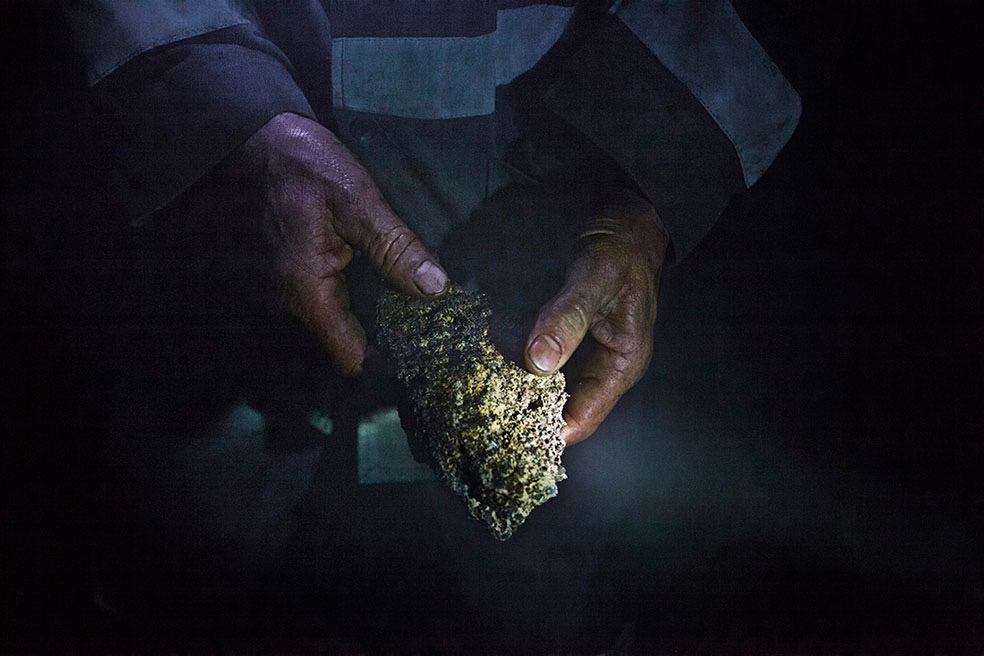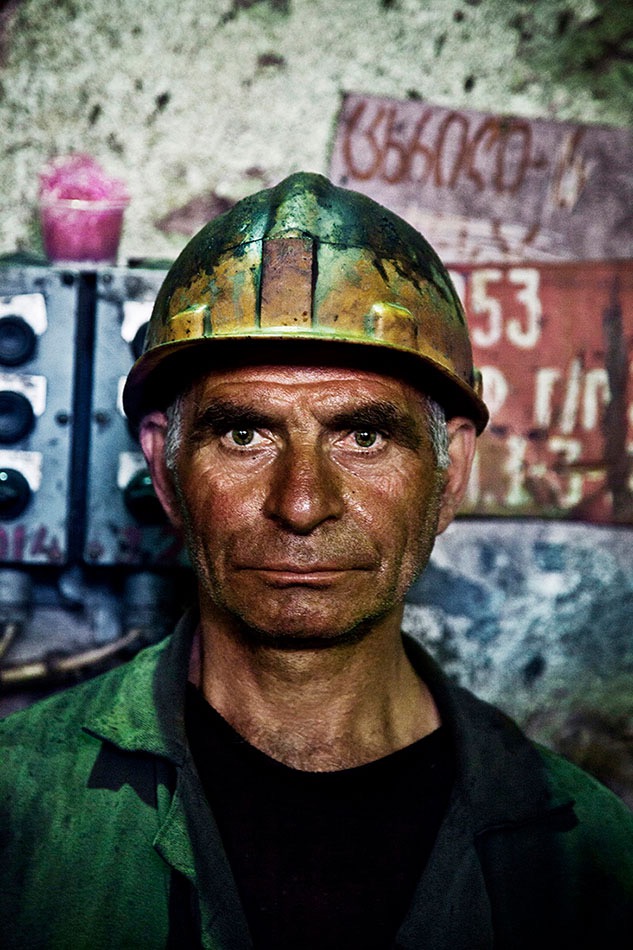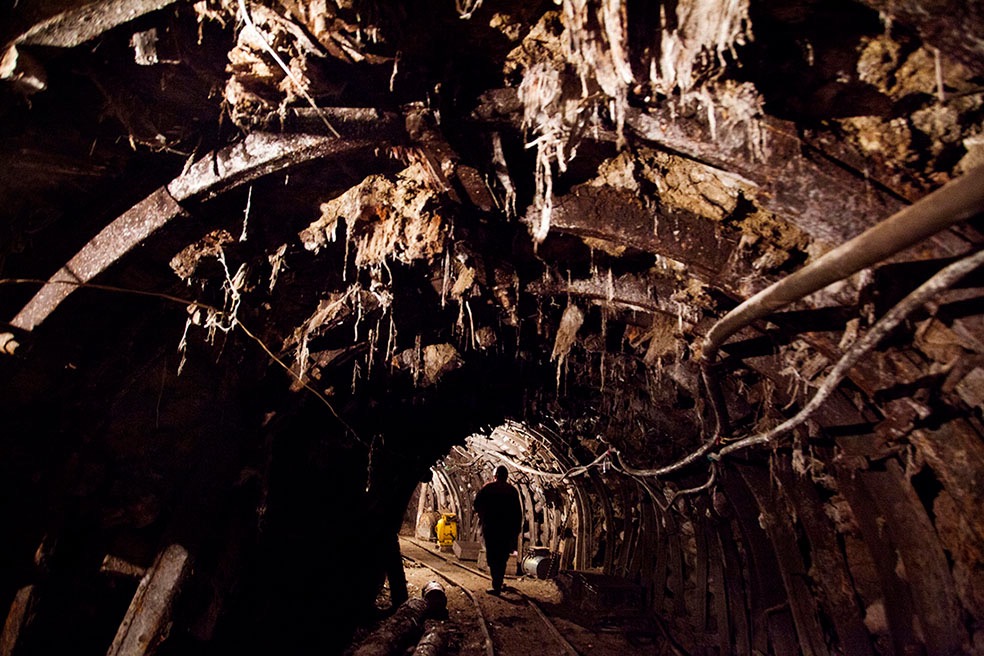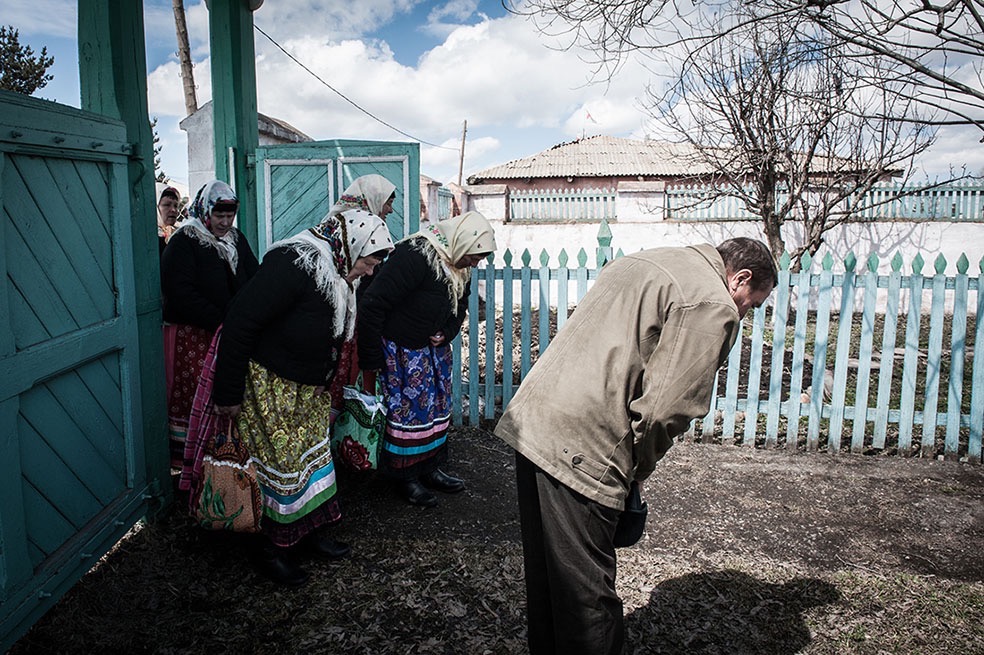Walking in the City of Chiatura in a hot weather is almost like a misty dance floor of a club. Manganese dust looks as if it is visible due to open pit mines. The main river Kvirila, which flows through the whole town is poluted as the remnants of the ore are flushed down. The grey City’s entrance seems abandoned at first, but once you look up and see rusted 60 year old cable cars going up and down the mountains you are magnetized; “When we hear a cranky sound on the wire during the transportation , we know it has to be fixed and we fix it”, says a woman who has worked as a Cable car conductor for 20 years. 60 year old Cable cars have never been replaced. It was built during the Soviet era, as a purpose for the mineworkers to transport up and down the mines.
There are approx 3,400 people working as mineworkers with 8-12 hours of work, with monthly salary of approx. $270. Throughout the years there have been massive and small protests against harsh conditions, low salaries and mass dismissal of employees. Several cases of death rose a question of how safe it is for people to work in the mines, deep in the ground with equipment that have never been upgraded since installment, dated back in the 50’s.
Many miners are originally from the villages on the surface of the tunnels, so to feed their families they are digging and exploding under their own homes, in the search for Manganese. Inside the tunnels the water drips, there is a lack of oxygen, because of the poor ventilation system. After the explosion of the soil the chemicals stay in the tunnel. Mineworkers endure the hard labor to support their families. Chiatura City has the largest manganese reserve in Georgia. Being a mineworker is mostly the only choice for a job in the City. The younger generation slowly make their way to the Capital for a better future, but many stay and follow the footsteps of their Parents.
My story focuses on the lives of mineworkers who face the everyday challenge working under harsh conditions. As well as the daily life of the locals and young generation, who despite the many components that are missing to live a happy life, still stay in Chiatura, as their love of the City never fades.

Daro Sulakauri is a Georgian photojournalist. She was born in the Caucasus nation of Georgia and currently is based in Tbilisi. After obtaining a degree from the Department of Cinematography at the Tbilisi State University, she moved to New York to study photography at the International Center of Photography. Before graduating in 2006, she was awarded the John and Mary Phillips Scholarship as well as being recognized by the ICP Director’s Fund.
Upon completing her studies, she returned to the Pankisi Gorge in her native Georgia to document a hidden narrative of the Chechen conflict in an outpost of refugees who crossed to Georgia from Chechnya and have remained in relative isolation ever since. The project won second place of the Magnum Foundation’s Young Photographer in the Caucasus award in 2009. Daro has won a Lensculture award for her story on Early Marriages in mini series as well as EU prize for journalism and Human Rights House prize in London. She was included in a list of 30 under 30 Women Photographers and Photo District News’ 30 emerging photographers to watch. She is a participant of World Press Photo Joop Swart Masterclass 2017, 2018 Reuters Photojournalism grantee and official Canon Ambassador. As a freelance photojournalist, her work can be seen in publications such as The New York Times, National Geographic, der Spiegel, Forbes Magazine, and other.
Website: darosulakauri.com
